Health is wealth (Small Changes, Big Impact)

Depression. a sickness that impacts many more people than we could ever realize. It’s been called a phase disease, something that all people experience. In the past, the general populace was more equipped to handle these obstacles in life. They had greater attention and physical strength at that period. Well, the environment has an impact as well.
The ongoing changes in the era have led to the creation of numerous solutions to address these issues. We have access to more equipment, meetings, inspirational talks, seminars, doctor appointments, and a plethora of other solutions every day. The fact that people are overcoming these obstacles is positive.
Today, I’m going to share some tiny details that contribute to sadness and how adopting a tiny routine might cure it.
Depression is a prevalent yet severe mental illness that has an impact on a person’s feelings, thoughts, and day-to-day functioning. It is typified by enduring depressive and dismal feelings as well as a lack of interest in or enjoyment from once-enjoyed activities.
Changes in focus, energy levels, hunger, sleep patterns, and energy levels are some of the physical symptoms of depression. Depression has a significant negative influence on a person’s capacity to function and enjoy life; it is more than just a fleeting mood.
Numerous factors, including genetic, biochemical, environmental, and psychological ones, might contribute to depression. Early intervention is essential to effectively treating the illness, and treatment usually consists of a combination of medication, therapy, and lifestyle modifications.
According to estimates from the World Health Organization (WHO), 322.48 million individuals worldwide suffered from a depressive disorder in 2015. Of those affected, 56,675,969 people, or 4.5% of the population, were estimated to be in India. This indicates that roughly 18% of the estimated world population suffers from depression.
More than 14% of Indians suffered from mental illnesses in 2017, with older adult females accounting for the majority of this percentage. According to a UNICEF poll conducted in 2021, 14% of Indians between the ages of 15 and 24 said they felt depressed or uninterested frequently.
According to the National Mental Health Survey 2015–16, one in twenty Indians experience depression, and 15% of Indian adults require active treatment for one or more mental health issues.
Indeed, there is a permanent cure for it. One of the things that can eventually cause a major illness is depression. You are aware that continuing to pursue your happiness is the best method to overcome depression. The vast majority of people on the planet are struggling with depressive symptoms.
Stressful life events: Sad occurrences, including bereavement, divorce, trauma, loneliness, and inadequate support, can set off depressive episodes.
Medical conditions: Depression can be brought on by long-term pain and long-term illnesses like diabetes.
Medication: Depression is a side effect of certain drugs.
The Power of Exercise: Can It Help with Depression?
What Can Cause Depression? Understanding Common Triggers
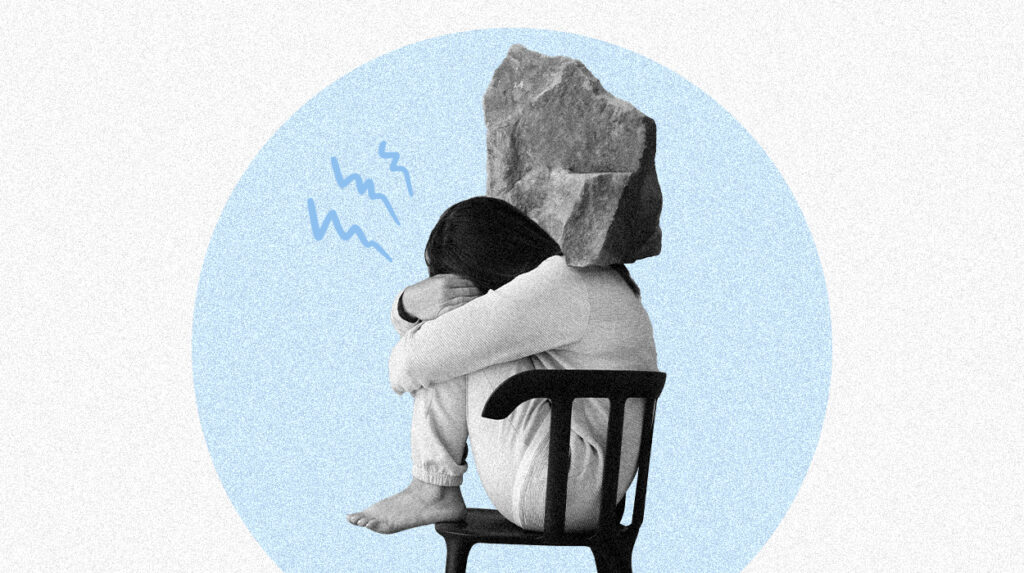
Life Events that are Stressful
Loss of a Loved One: The profound loss and emotional suffering that accompany the death of a family member, friend, or pet can set off depression.
Divorce or Breakup of Relationship: Losing a big relationship can leave one feeling abandoned, alone, and depressed.
Financial Stress or Job Loss: Experiencing financial hardships, being unemployed, or losing your work can all lead to stress and a sense of worthlessness, which can eventually result in depression.
Significant Life Transitions: While occasionally happy, situations like relocating to a new place, retiring, or beginning a new career can also cause stress and exacerbate depression.
Chronic stress
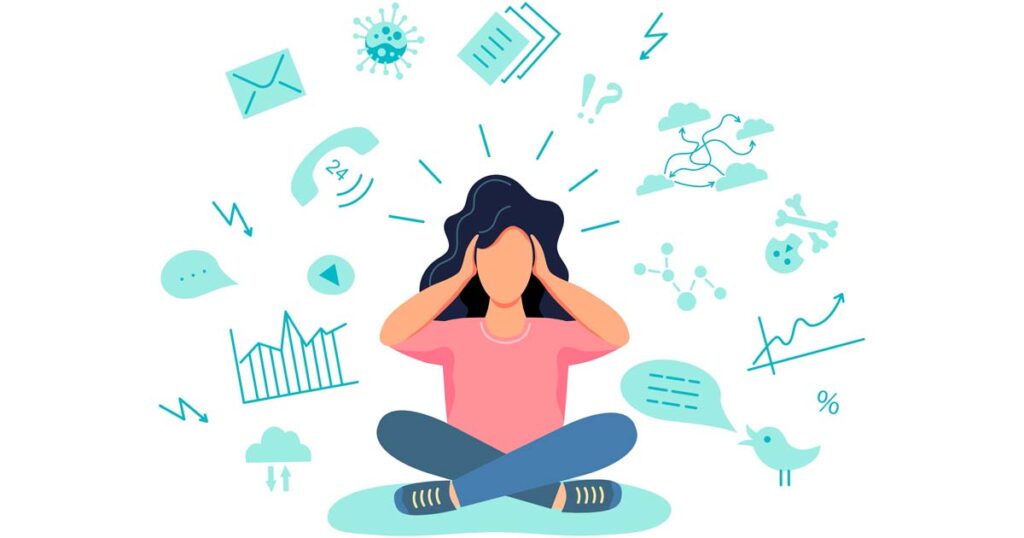
Chronic Stress at Work: Burnout and depression can result from persistent stress at work, which includes unreasonable expectations, long hours, and a lack of control.
Family Conflict: Prolonged conflict or strain within the family, including disagreements or unsolved problems, can be a major depressive trigger.
Abuse and Trauma

Childhood Trauma: Early exposure to physical, emotional, or sexual abuse, neglect, or other traumatic situations can raise an individual’s chance of developing depression in later life.
Depression and post-traumatic stress disorder (PTSD) can result after experiencing or witnessing a stressful incident, such as an accident, natural disaster, or violent crime.
The Power of Exercise: Can It Help with Depression?
Social Exclusion and Alone
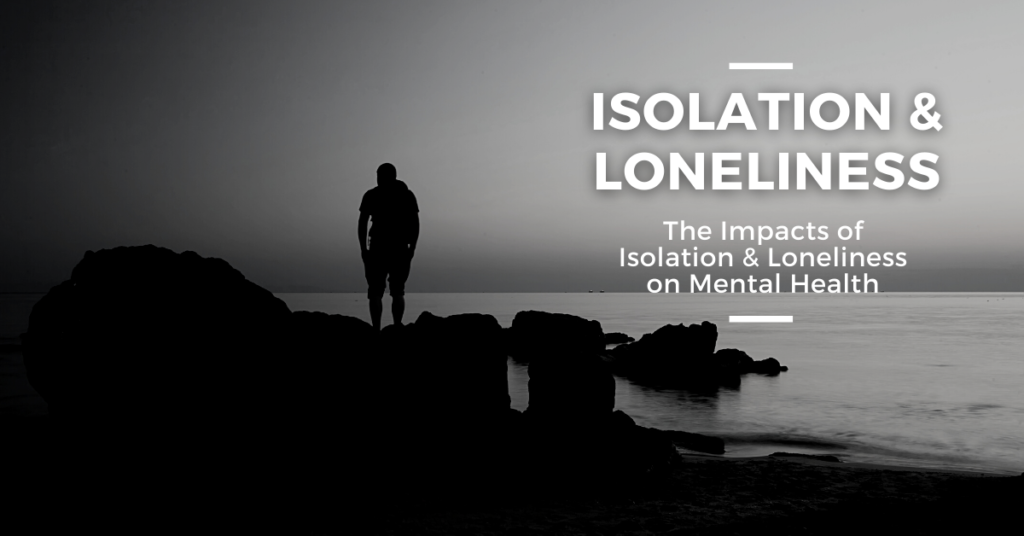
Absence of Social Support: Depression risk can be considerably raised by experiencing feelings of loneliness, isolation, or disconnection from others.
Chronic Loneliness: Prolonged isolation can breed pessimism and despair, which can turn into depression.
Health concerns
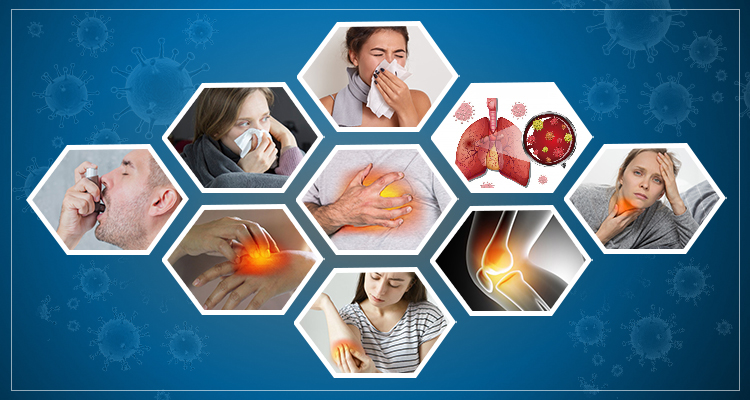
Chronic Illness: Because they cause constant stress and negatively affect quality of life, long-term physical health issues including diabetes, cancer, heart disease, or chronic pain can cause depression.
Serious Injury: Depression may arise from suffering a serious injury that results in a disability or a major alteration to one’s way of life.
Substance abuse
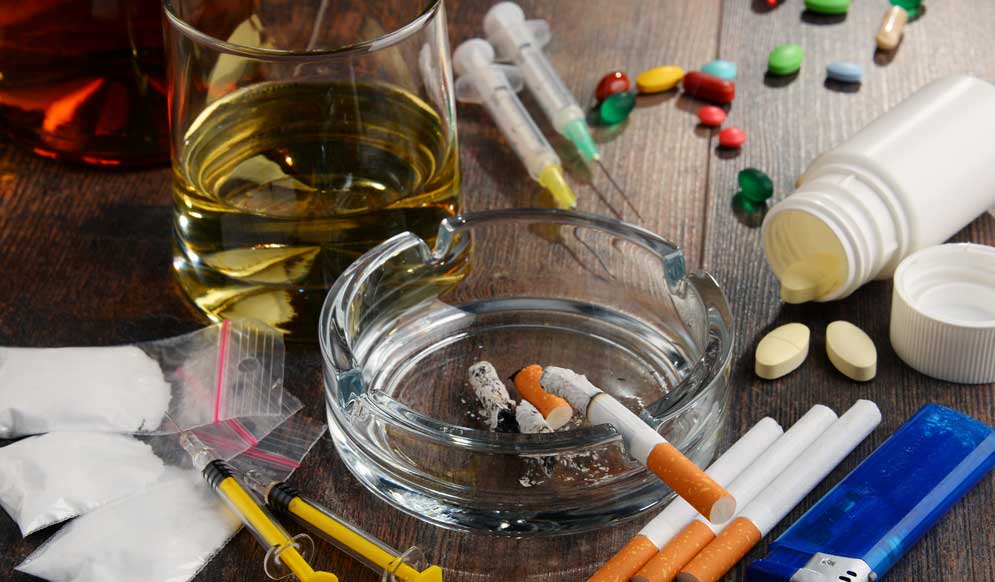
Alcohol and Drug addiction: Substance addiction can change the chemistry of the brain, which can cause or exacerbate depression. Additionally, it may set off a vicious cycle in which despair fuels increased substance abuse as a coping method.
The Power of Exercise: Can It Help with Depression?
changes In hormone

Pregnancy and Postpartum: Some women may experience depression as a result of hormonal changes that occur both during and after pregnancy (postpartum depression).
Menopause: The changes in hormones that occur during this time may potentially be linked to the onset of depression.
Poor sleep
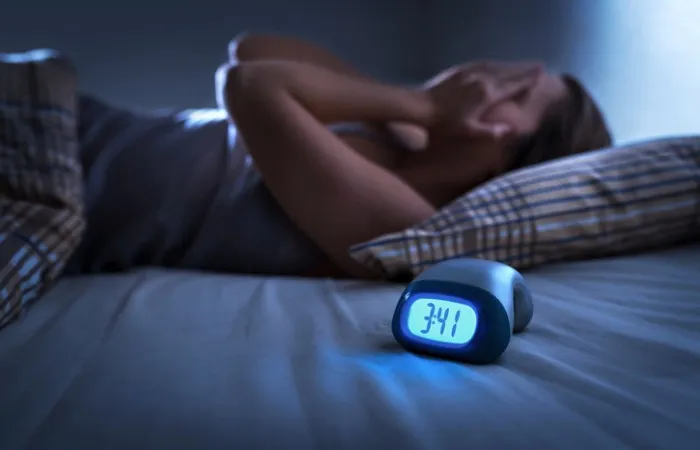
By impairing mood, energy, and cognitive function, long-term sleep issues like insomnia can exacerbate depression.
Sleep Disorders: Illnesses including restless legs syndrome and sleep apnea can cause sleep disturbances, which can exacerbate depression.
Diet and nutrition

Poor Diet: Depression may be exacerbated by diets heavy in processed foods, sweets, and unhealthy fats, which can have a detrimental effect on brain and gut health.
Nutritional Deficiencies: Low levels of important minerals, such as magnesium, B vitamins, and omega-3 fatty acids, can raise the risk of depression.
The Power of Exercise: Can It Help with Depression?
unfavorable thought patterns
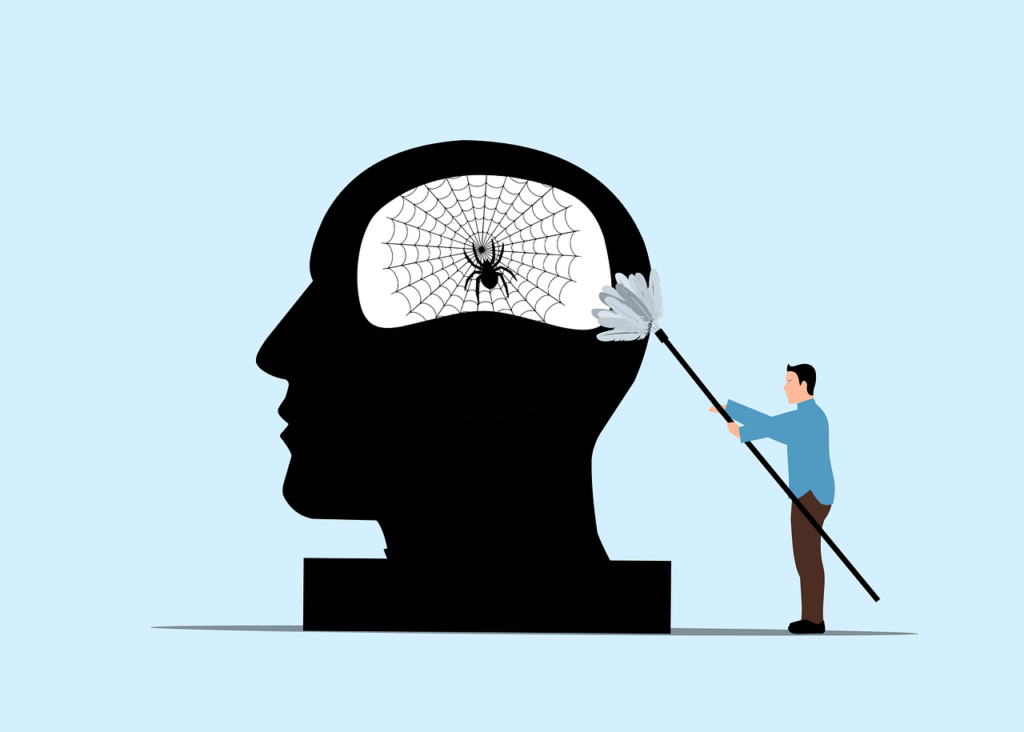
Pessimism and Self-Criticism: Depression can result from persistently negative thinking, which includes a pessimistic view and harsh self-criticism. These thoughts can also fuel emotions of hopelessness and inadequacy.
These triggers can differ greatly from person to person, and depression frequently has multiple contributing causes rather than a single cause.
Preventing and managing depression may require an understanding of these factors and taking appropriate action.
Depression and adults

Depression can affect an adult’s emotions, behavior, and physical health, among other elements of their life:
Sentiment
Depression can include feelings of melancholy, anxiety, emptiness, or irritability. It can also cause difficulty sleeping. They might feel useless, worthless, guilty, or without hope.
Behavior People suffering from depression may exhibit negative, aloof, or withdrawn behaviors. Additionally, they could act more impulsively and partake in risky activities like drug or alcohol use. Individuals with depression may also experience difficulties with focus, memory, or decision-making.
Physical well-being
Aches, pains, headaches, or stomach issues that do not get better with treatment can be brought on by depression. Additionally, it may have a detrimental effect on immunity, leaving people more susceptible to illnesses and infections. Individuals who suffer from depression may also be more susceptible to long-term illnesses such as diabetes and stroke, as well as cardiovascular disease (CVD).
Some other depression symptoms in adult
psychological signs and symptoms
Depression’s psychological symptoms include the following:
- Persistent melancholy or low spirits
- Having poor self-esteem, feeling helpless and forlorn, crying, and feeling guilty
- Feeling agitated and insensitive toward other people lacking enthusiasm or drive and having trouble making judgments
- Having suicidal thoughts or ideas of killing oneself, not enjoying life, feeling nervous or frightened
Physical symptoms
Depression’s bodily manifestations include:
- Exhibiting unusually slow movement or speech alterations in appetite or weight (typically lowered, but sometimes raised)
- Constipation
- Mysterious aches and pains
- Reduced sex drive (loss of libido) and low energy
- Disrupted sleep, such as having trouble falling asleep at night or getting up early in the morning
The Power of Exercise: Can It Help with Depression?
Social symptoms
Depression’s social symptoms include the following:
- Reducing social activities and avoiding communication with friends
- Putting off your interests and hobbies
- Experiencing problems at work, home, or with your family
How to overcome depression?

It takes time to overcome depression, but it is here. The secret to any challenge is perseverance and consistency. There are many different approaches and resources in our world that can help people overcome depression.
There is nothing in this world that is insurmountable. The process of racing from the starting line to the finish line is what matters.
I’m going to touch on a few important concepts that, when correctly applied, can return you to your best and purest self.
I observe how some people can use depression as a powerful drive. It’s advantageous. But as you well know, the vast majority of people are never able to escape being stuck for very long. Yes, the thoughts were in their minds. It is the birthplace of depression.
Humans typically acquire new knowledge later in life. Never undervalue the might of nature. Similar to how a small wound heals slowly. The depression is the same.
Use your fury wisely. Depression combined with anger can be destructive. In some circumstances, it can be difficult for us to maintain our balance. I have respect for those who have conquered depression as well as those who are currently battling it. The lesson here is to take your time.
Don’t rush the natural process

Letting go of whatever is preventing you from moving forward is the first step towards recovering from it. Sure, it can hurt, but we’re resilient too. Rather of resisting it, let it to unfold naturally.
Fighting it leads to an imbalanced mentality, which can result in disease or any number of symptoms. Indeed, a small amount of push. Pushing through difficult situations develops a champion’s persona.
You frequently put undue pressure on yourself to get results quickly when you rush the process. Pressure like this can cause worry and tension to spike, which can be detrimental to your growth.
Rushing can lead to anxiety and eventually induce burnout or complete give-up since it can develop a fear of not fulfilling expectations within a given timeframe.
Rushing can cause you to become irritated with other people, which can damage relationships. Conflict and tension might arise if you push them too hard or get impatient with their speed.
In your relationships with others, you might be less present if your attention is on moving quickly through the process. Misunderstandings, lost opportunities, and strained relationships may result from this.
The Power of Exercise: Can It Help with Depression?
push

Push Life seems to be all about pushing through every obstacle at times. Similar to how we force ourselves to go to work every day. We also didn’t realize how hard we push ourselves on a daily basis.
I observed that some patients left the treatment midway. simply because they won’t be able to conquer it or because it takes time. However, that’s when things get tough.
It’s similar to ending a pattern of inactivity. Depression frequently results in inaction and withdrawal, which can exacerbate depressing thoughts. You can interrupt this pattern by forcing yourself to do even modest tasks, like getting out of bed, taking a stroll, or doing a simple activity.
No matter how tiny, every action builds momentum. Getting one work done might increase your drive to take on another, which can lead to progressively bigger gains.
Pushing yourself to accomplish a goal, no matter how tiny, can improve your self-worth. Task completion gives one a sense of accomplishment, which combats the worthlessness that sadness is typically connected with.
Challenging oneself doesn’t have to involve tackling enormous obstacles all at once. You can gradually show noticeable improvement and gain confidence by creating and completing modest, manageable goals.
Rest
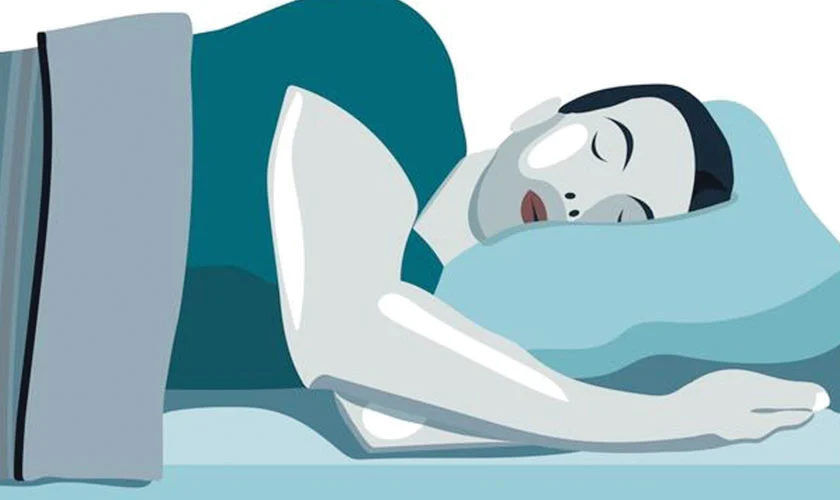
I am aware of how difficult it may be to manage daily tasks when depressed.
However, rest is the most widely applicable remedy. Yes, sleep deprivation can lead to restless days, which in turn can cause illness or any other ailment.
For many individuals, sleep is a luxury that they cannot afford. Why do I feel like I need to rest more? since this is the time when you unwind.
The hour of night rest is when mending occurs to its fullest. For a number of reasons, getting enough sleep is crucial to controlling and conquering depression.
Depression can be intellectually and physically draining, and healing requires getting enough sleep.
The physical effects of depression frequently include exhaustion, aches in the muscles, and a compromised immune system.
The physical strain that depression causes can be healed and recovered from by the body through rest.
Sleep allows the brain to recuperate from the persistently pessimistic thoughts, tension, and emotional depletion that depression entails. Resilience and mental clarity depend on it.
The Power of Exercise: Can It Help with Depression?
Physical activity

Engaging in physical activity is crucial for conquering depression. Momentum is produced by movement. Engaging in physical activity can help combat depression as it provides both short-term and long-term mental health advantages.
Endorphins, also referred to as “feel-good” hormones, are released when you exercise and have the power to improve mood and lessen depressive symptoms. This natural high has the potential to be a potent remedy for depression symptoms.
Frequent exercise also raises dopamine and serotonin levels, two neurotransmitters that are important for controlling motivation, enjoyment, and mood. Elevated concentrations of these substances may aid in reversing the chemical dysregulation linked to depression.
The body’s main stress hormone, cortisol, is lowered by exercise. Reducing cortisol levels can help reduce stress and anxiety, two things that are frequently associated with depression.
Response to Relaxation: Exercise encourages relaxation and eases tense muscles, which can lessen the physical signs of stress and anxiety and add to a general feeling of calm.
Diet

Diet is a significant factor. Based on what the three gunas say. While mood swings are normal during depression, it can be challenging to manage them before they spiral out of control.
In this universe, there are three kinds of food: Rajsic, Tamsic, and Satvik. This is a critical turning point because, when depressed, people tend to search for meals or items that bring them joy or provide motivation. However, it’s best if a person avoids processed and spicy foods.
Diet has a significant impact on mood regulation, brain function, and general mental health, all of which are important for overcoming depression.
A multitude of nutrients are necessary for the brain to function correctly. The synthesis of neurotransmitters and the functioning of the brain depend on essential fatty acids (such omega-3s), vitamins (like B vitamins, including B6, B12, and folate), and minerals (like magnesium and zinc). A diet high in these nutrients promotes mental and cognitive health, both of which can lessen the symptoms of depression.
Blood sugar spikes and crashes brought on by diets heavy in simple carbs and processed sugars can exacerbate symptoms of anxiety and depression as well as mood swings.
Eating complex carbohydrates, such as veggies and whole grains, helps to keep blood sugar levels stable and moods consistent.
Consuming meals that are well-balanced and include a variety of complex carbohydrates, healthy fats, and protein will help to stabilize blood sugar levels throughout the day, which helps lessen fatigue and mood swings.
The Power of Exercise: Can It Help with Depression?
Watching funny stuff

It is an organic enhancer. Laughter is the body’s natural way of producing feel-good chemicals called endorphins. These endorphins promote a feeling of wellbeing and have the ability to momentarily reduce mental and physical pain, which is very helpful for people who are depressed.
Rumination and pessimistic thoughts are common side effects of depression. Funny videos provide as a mental break from these kinds of ideas, breaking the pattern and directing attention toward something more constructive.
It has been demonstrated that laughter strengthens immunity by promoting the generation of antibodies and stimulating immune cells that provide defense. Better physical health is correlated with better mental health because a robust immune system supports overall physical health.
A healthy body promotes a healthy mind, and the immune system’s benefits from laughter can improve mood and increase resistance to depression.
Stay away from toxins

“Toxins” can refer to a wide range of detrimental chemicals or influences that have an adverse effect on our mental, emotional, and physical health. These pollutants can originate from a variety of places, including as the environment, way of life decisions, and even personal connections.
By boosting general wellbeing, lowering bodily stress, and supporting brain function, avoiding toxins can be a big help in beating depression.
Toxins in the Environment Food-Based Toxins Lifestyle Pollutants
Psychological and Emotional Toxins Spiritual and Cultural in Society Toxins from Technology The Toxins of Behavior
Toxins in life are a wide variety of detrimental chemicals and influences that can affect our mental, emotional, physical, and spiritual health.
It is essential to identify and reduce exposure to these poisons in order to preserve general health and lead a balanced, satisfying life.